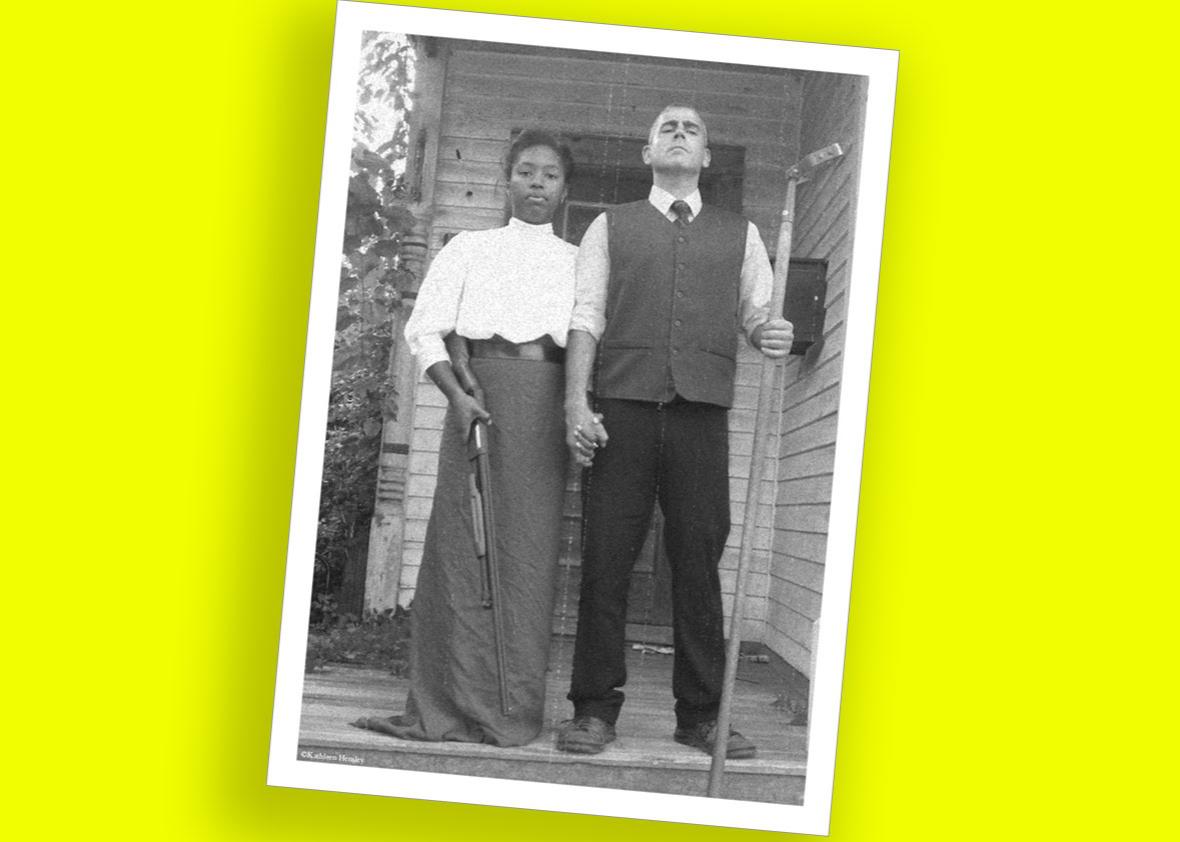On this season of Working, we left the East Coast behind and flew to Detroit. We’re speaking with eight people who are drawing on the city’s complex history as they work to create its future.
For our second episode of the season, which you can listen to via the player above, we drove to Detroit’s North Corktown neighborhood. There, we met up with Greg Willerer, an urban farmer who grows a variety of organic crops on a few plots of carefully cultivated land, totaling a little more than an acre. We followed him as he made his rounds, being followed in turn by an adorable duckling that, according to Willerer, thinks it’s a person. If you listen carefully, you can hear it quacking away in the background throughout our conversation.
Willerer got his start just over a decade ago. At the time, he was a teacher, but he ran into professional trouble when he joined an effort to push back against teach-to-the-test curricula. He’d been gardening in the summer, occasionally selling crops from his land when he had extras, and it occurred to him that he might be able to expand his side hustle into a full-time career. Over the next few years, he did just that, eventually reaching the point where he felt he had “the freedom to decide everything that you want to [do] during a given day.”
He doesn’t control everything, of course. What he plants and when he plants it is very much a question of weather patterns and seasonal changes. And yet, for Willerer, there’s still a kind of luxury in that situation: “I’d rather be at the mercy of the weather than someone who thinks they know how to teach,” he says.
The work isn’t without its frustrations, though. In a more ideal situation, he’d like to buy more of the lots that abut his current property, allowing him to expand his business. “It’s often difficult, because the city doesn’t want to sell us a lot of this land,” he says, claiming that property often ends up in the hands of speculators who let it go to waste. “If you want people to really support a city and to do something long-term, you should support the neighborhoods and the small businesses,” he says.
According to Willerer, because land is at a premium in the city, urban farmers have to focus on high-efficiency crops. For Willerer, that often means microgreens and other plants that he can turn around quickly. The greenhouse that we stood in as he worked was verdant with rows of arugula and spinach, along with an array of other, less familiar, greens—including sorrel, chervil, and lemon basil. He even cultivates purslane—a plant that many gardeners dismiss as a weed—calling it a “garden volunteer” and praising its flavorful qualities We watched as he almost absentmindedly clipped and gathered these varied crops into bags of eccentric and flavorful salad mixes that his wife would later deliver to nearby restaurants.
“Spring mix is so universal nowadays [that] it doesn’t really taste like anything. We tend to put things in that have sort of extreme flavor,” Willerer tells us, handing over a few leaves of mizuna that delivered a slow-building, spicy punch.
Sometimes, Willerer sells his produce directly to customers at the Eastern Market, where our first guest of the season also got her start. But one of the advantages of urban farming in Detroit is that “you have a really nice array of restaurants and markets and a close distance between the restaurant and the farm.” Willerer’s farm also speaks to a complex give and take between local businesses: Just as he provides vegetables to local establishments, some of their food scraps and coffee grounds end up in his compost heap, helping to fertilize the next season’s crops.
“We’re all pretty symbiotic,” Willerer says of those relationships. “We often use the word ecosystem.”
In this episode, Willerer goes into that and more. He touches on the role that white flight has played in shaping contemporary Detroit, and he offers some tips to other would-be urban farmers. Then, in a Slate Plus extra, Willerer discusses some of the equipment that makes working on an urban farm feasible. If you’re a member, enjoy bonus segments and interview transcripts from Working, plus other great podcast exclusives. Start your two-week free trial at slate.com/workingplus.
